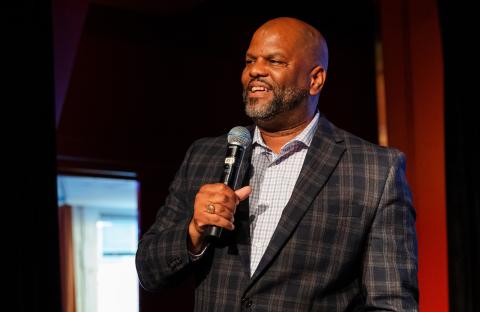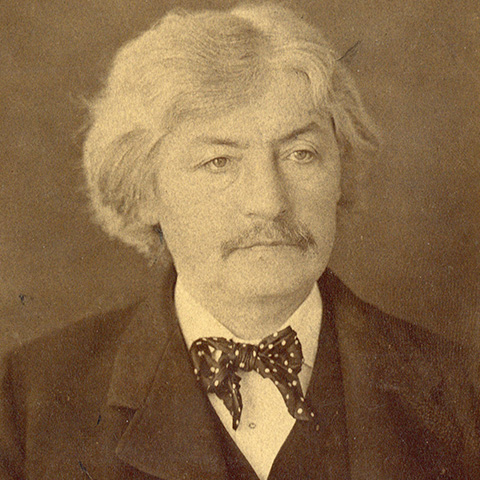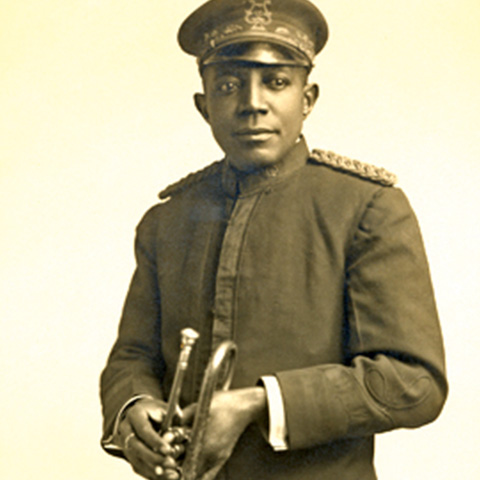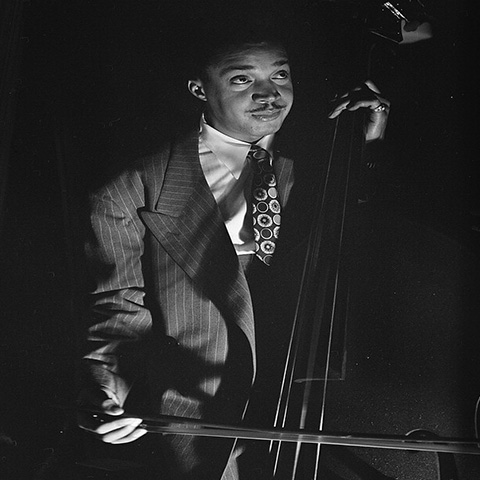Tracing Our Past to Build a More Inclusive Future

Emmett G. Price III
Photo by Liz Friar

Julius Eichberg
On February 11, 1867, German-born educator, violinist, and composer Julius Eichberg (1824–1893) founded Boston Conservatory of Music as one of the first conservatories to admit women and people of color. Inspired by his own success as a student at the Brussels Conservatory—under the recommendation of German composer Felix Mendelssohn—and subsequently as a professor of violin at the Geneva Conservatory, Eichberg envisioned a training school with a world-class faculty accessible to all musicians, regardless of race, gender, or background—a radical concept at the time. His aspiration for inclusion was likely driven by his childhood experience as the son of a Jewish family living in Düsseldorf, Germany, after the fall of Napoleon Bonaparte. Like many who endured the trauma of ethnic, cultural, and religious discrimination, by immigrating to the United States in 1857, he sought the same sense of inclusion that he engendered through the founding of Boston Conservatory.

Perry George “P. G.” Lowery
Opening its doors less than two years after Juneteenth, Eichberg’s conservatory was the first in the nation to offer talented formerly enslaved people the opportunity for an exceptional musical education. Toward the end of the 19th century, Eichberg invited Perry George “P. G.” Lowery, later acclaimed as the “World’s Greatest Colored Cornet Soloist,” to study at the Conservatory, making him the first documented Black student to complete studies at the school. During the challenging years of the post-Reconstruction era, the Conservatory continued to take the courageous posture of inclusion, as witnessed by the graduation of New England Conservatory transfer student William Andrew Rhodes in 1940. In addition to serving as a celebrated church organist, the decorated composer had works performed by the Boston Symphony Pops Orchestra under the baton of Arthur Fiedler, as well as by his own Rhodes Opera Society.

Leroy Eliot “Slam” Stewart
Meanwhile, in the decades surrounding the two world wars, many musicians studied at Boston Conservatory who would go on to make names for themselves in jazz, including saxophonist and bandleader Sam Rivers, double bassist Leroy Eliot “Slam” Stewart, and composer and saxophonist Gigi Gryce, among many others.
Over the course of the 20th century, progress toward the realization of Eichberg’s aspiration varied, but in more recent years, the transformative leadership of Richard Ortner, who served as president of the Conservatory from 1998 to 2017, moved the school forward. Prioritizing social responsibility and the notion of the artist-citizen, Ortner led with conviction and a focus on inclusion and accessibility in the broadest sense possible. He established an identity of excellence and a culture of humanity that remains a hallmark of the Conservatory to this day. Under Ortner’s guidance, the number of women and people of color expanded in the student, staff, and faculty ranks, and he launched groundbreaking programs for community members with disabilities. With the growing prestige of the dance and theater programs, curricular, artistic, and programmatic innovations increased the notoriety of the school. Under his leadership, Boston Conservatory entered into a historic merger agreement with Berklee College of Music.
Upon Ortner’s retirement, Cathy Young, the former dean of dance, was appointed inaugural executive director and became the first woman to lead the prestigious learning environment now referred to as Boston Conservatory at Berklee. Under Young’s leadership (2017–2022), the Conservatory boldly expanded on Eichberg’s vision by centering diversity, equity, and inclusion as a holistic approach not only to education but also to leadership. Her tenure saw a definitive increase of Black and women academic and administrative leaders, culturally relevant and inclusive curricula, and philanthropic support earmarked for diversity, inclusion, equity, and accessibility efforts. Her attention to student success and academic excellence remains a fixture within the Conservatory ethos.
Young’s commitment to reimagining the traditional conservatory model is evidenced by the inclusion of the Africana Studies Division—designed for both Berklee College of Music and Boston Conservatory students—as a central offering for Conservatory students. This work now continues under the leadership of Interim Executive Director Michael Shinn.
Together, the Conservatory executive leadership team is charting a bold pathway forward for what we believe is the first conservatory in the United States with an embedded Africana studies division. This pathway will position the division to actively engage in the training, mentoring, and support of all Conservatory students across the disciplines of dance, music, and theater. Through courses, artistic and scholarly residencies, and a number of cocurricular activities, the Africana Studies Division will ensure the broad inclusion of the African diaspora as an example of culturally competent pedagogy as we expand historical canons to be more inclusive. Through curated workshops, seminars, panel discussions, and individual mentoring, our students will have access to expanded opportunities to emerge confident and well prepared for an ever-changing world. This pathway encourages even more expansive thinking in regard to the ways we recruit, retain, and mentor our students, staff, faculty, and administrative leaders for success as globally engaged and technologically savvy leaders.
Over its 157-year history, Boston Conservatory has been a leader among leaders. From Eichberg’s original aspiration of inclusion through seasons of fluctuation, we have always found our way back to our standard of excellence. As we move forward, we boldly aim to leverage our creative, artistic, and innovative superpowers as culturally competent creatives to inspire, influence, and embody the change we desire to experience.
Emmett G. Price III, Ph.D., is founding dean of Africana Studies at Berklee. He can be reached at epriceiii@berklee.edu. “Tracing Our Past to Build a More Inclusive Future” first appeared in the 2024 issue of STAGES, Boston Conservatory’s annual magazine. READ: STAGES 2024

